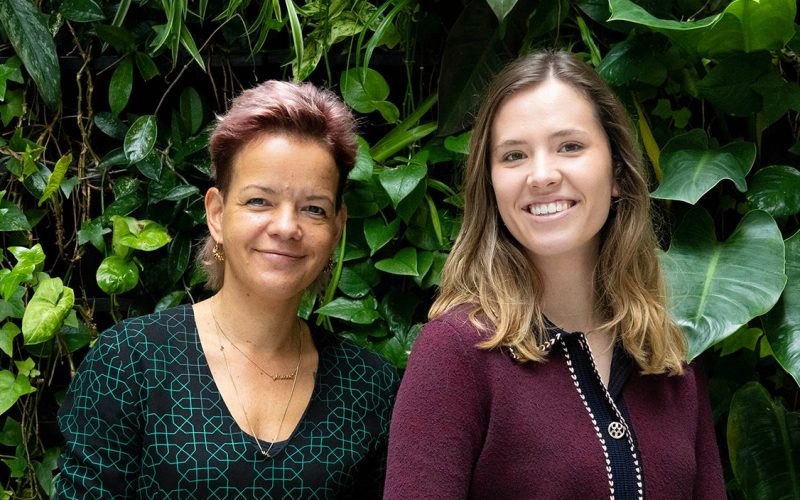Not just pills and medical help, but treatment that focuses on the patient’s conversation about the meaning of life and existence. UMC Utrecht is starting a new study of existential and relational treatment in neuro-oncology patients. They often have a shorter time of life and/or loss of functioning. How do we treat them in the UMC Utrecht? And what is ‘existential’? The father of a deceased patient who lived with a brain tumor for more than 15 years is making this research possible through a donation.
From New York to Rotterdam. Father and son visited several hospitals worldwide, but always preferred UMC Utrecht. They liked the warm atmosphere and the caring conversations where feeling was central. What happened to them in the consulting room at UMC Utrecht? There was a relationship between patient and doctor, specifically focused on existential treatment. But what is it? And what made the contact perceived as good?
Anouk de Sain, neuropsychologist and PhD student, Professor of Neuro-oncology Tatjana Seute and Professor of Patient and Public Participation Astrid Janssens of UMC Utrecht are pleased with this new research. They emphasize the importance of the therapeutic relationship between healthcare providers and patients. A strong, friendly bond between the two is essential when making decisions. Anouk de Sain: “Existence – being there – or existential treatment is a term we gave to it ourselves. It’s about the patient’s sense of meaning. When you’re sick, it does something to your ‘existence.’ In the case of a brain tumor, the patient’s ‘existence’ is literally affected. All the medical content, technical developments fall away if you don’t have the conversation with the patient. It is important to talk together about existence (existentialism) and the personal needs of the patient.”
Photo: Anouk de Sain (right), neuropsychologist and PhD student and professor of neuro-oncology Tatjana Seute (left) lead the new research.
Before the research began, we interviewed psychiatrist Dirk de Wachter. In this interview, he talks about his own experiences as a cancer patient and recommendations he has for scientific research. In psychiatry, more research has been done on the therapeutic relationship. He indicates that somatic medicine could learn a lot from psychiatry. For example, he describes that the real sense of human suffering is from the therapeutic relationship. The “normalcy,” loving, kindness and genuineness are important aspects.
“Taking good care of the human being who is not healing, that is real medicine.”
Dirk de Wachter, Belgian psychiatrist, professor at the
KU Leuven and cancer patient himself
Neuro-oncologist Tatjana Seute argues for more focus on meaningful decision-making at the right time, rather than excessive treatments with no clear goal. Tatjana: “We look at the therapeutic relationship between doctor and patients. They have to level with each other, as friends. It is an interplay and a prerequisite for making the right decisions. It’s always difficult for doctors to deliver bad news, especially if they don’t know the patient well. So get to know your patient, tune in to the person in front of you. What are the patient’s personal needs and desires? We always want more and keep treating. But we don’t always have to. Make meaningful choices together at a meaningful time. This can help address the challenges in health care, because we get stuck in the amount of care we have to provide.”
UMC Utrecht itself is part of the research. Anouk: “Feelings are the focus for patients, but we are also looking at experiences of loved ones and caregivers. What do we find important in UMC Utrecht in terms of existential treatment? Why do we treat the patient in a certain way? It doesn’t matter which part of the body you tinker with, the discussion during treatment is essential. Every treatment deserves attention to the patient, to the person you have in front of you as a healthcare provider. I hope that what comes out of this research will help us train the caregivers of tomorrow.”
The father of a deceased patient who battled a brain tumor for more than 15 years is making this research possible through a periodic donation via Friends of UMC Utrecht & Wilhelmina Children’s Hospital
With the knowledge and experience of our patients, we can continually improve and innovate care, education and research at UMC Utrecht. Therefore, we work together with our patients and it is important that we learn from and listen to them.
